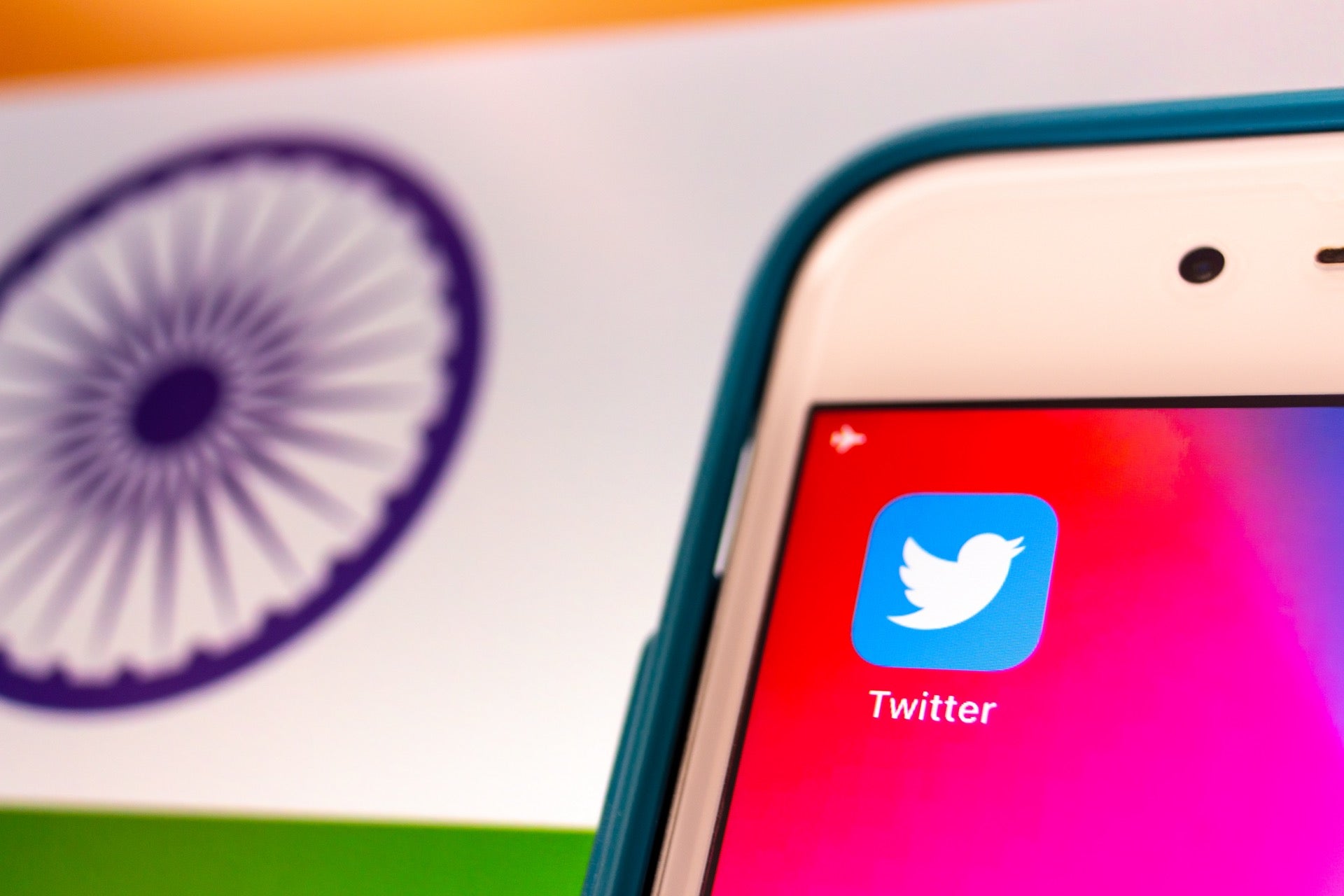
The Indian high court has ordered Twitter to obey India’s new social media code after it and other social media giants clashed with the government on free speech issues.
The Information Technology (Intermediary Guidelines and Digital Media Ethics Code) Rules, 2021 were introduced in February, but snapped into action in May.
The code has a number of rules pertaining to social media companies, many of which have proven to be points of contention between the Indian government and Big Tech firms.
The legislation was officially motivated by the Indian government’s desire to fight crime, maintain social order and protect national security. Russia has made similar arguments when taking action against social media companies.
The rule that landed Twitter with a court order states that social media organisations must appoint a grievance officer to deal with any complaints from the public.
The court hearing came after an Indian citizen accused Twitter of having failed to make such a hire.

US Tariffs are shifting - will you react or anticipate?
Don’t let policy changes catch you off guard. Stay proactive with real-time data and expert analysis.
By GlobalDataTwitter told the high court on Monday that it had already hired a compliance officer. It has posted contact details for the grievance officer online.
The officer will be required to take down risqué content within 24 hours, the Register reported. The officer will also be responsible of deleting content within 36 hours after being handed a takedown notice by the government or the courts.
“Twitter strives to comply with applicable laws in India,” a Twitter spokesperson told news agency ANI on Monday. “We continue to be strictly guided by principles of transparency, a commitment to empowering every voice on the service, and protecting freedom of expression and privacy under the Indian law.”
The news comes at a time when Silicon Valley giants have increasingly found themselves at loggerheads with the Indian government.
In the last week alone, Twitter, Facebook and WhatsApp have all faced off against the Indian government as the Covid-19 crisis in the country is intensifying.
On 25 May, police visited Twitter’s Delhi office after the microblogging site labelled a tweet from a member of the ruling government party as “manipulated media”.
The Bharatiya Janata Party spokesperson Sambit Patra’s tweet had attached a picture he claimed showed a document from the main opposition party, the Indian National Congress.
The document listed different ways to discredit prime minister Narendra Modi and his government’s shambolic handling of the Covid-19 crisis.
As of today, there has been over 28.1 million confirmed cases of Covid-19 in India and 331,895 deaths causes as result of the pandemic, according to Johns Hopkins University.
The Congress party shot back, claiming the document was forged. Twitter consequently issued the tweet with the “manipulated media” label which in turn led to the visit from the police.
Twitter later expressed concern over the safety of its Indian employees and labelled the police visit as a form of “intimidation tactics”.
“We are concerned by recent events regarding our employees in India and the potential threat to freedom of expression for the people we serve,” a spokesperson told Bloomberg.
“We, alongside many in civil society in India and around the world, have concerns with regards to the use of intimidation tactics by the police in response to enforcement of our global Terms of Service, as well as with core elements of the new IT Rules.”
The Indian IT ministry later replied, saying that Twitter’s employees “are and will always remain safe in India”, it condemned “the unfortunate statement issued by Twitter as totally baseless, false and an attempt to defame India to hide their own follies.”
The government had previously ordered Twitter to take down tweets critical of its handling of Covid-19, and the company had complied.
Twitter’s spat with India is not the only one: Facebook and WhatsApp face a similar confrontation with the Indian government, again pertaining to the new social media code.
Their issue is over the rule that requires companies to “enable identification of the first originator” of material posted to social networks and messaging services.
WhatsApp responded to the new rules by suing the Indian government, saying that the code is unconstitutional and undermine people’s right to privacy as well as saying that making messages traceable to external parties would effectively break end-to-end encryption.
“The threat that anything someone writes can be traced back to them takes away people’s privacy and would have a chilling effect on what people say even in private settings, violating universally recognized principles of free expression and human rights,” WhatsApp said in a statement.
Facebook-owned WhatsApp has voiced similar arguments whenever UK home secretary Priti Patel or government officials from other Five Eyes nations – Australia, Canada, New Zealand and the US – have suggested that messaging platforms should introduce a backdoor so that spooks could use it to identify terrorists, child traffickers and other crooks.
India is a key market for Big Tech firms. Facebook and Google have both identified the nation as its biggest market by users.







